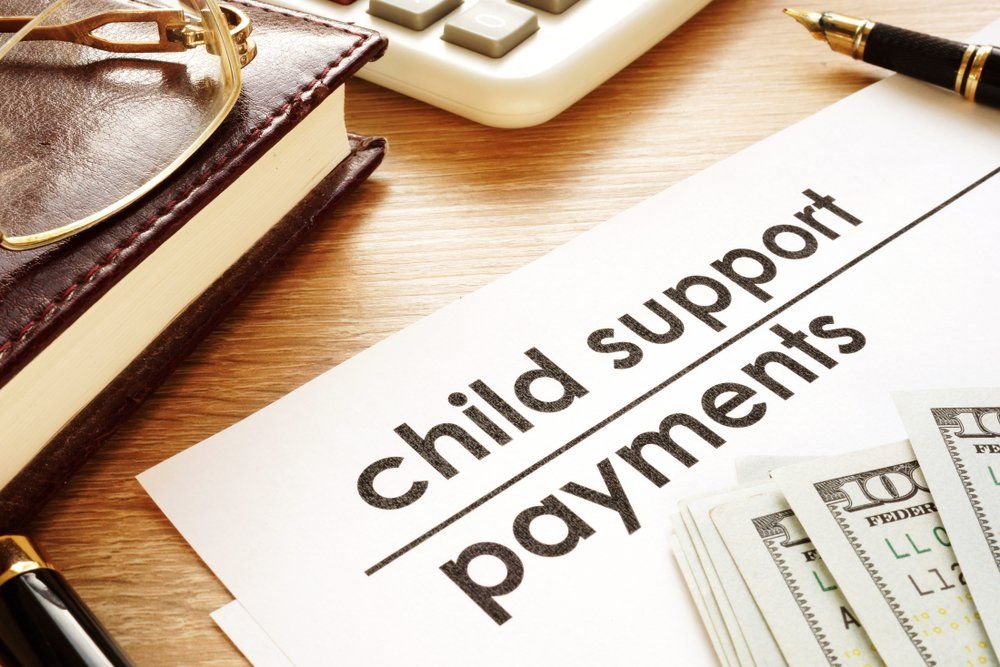Stay Informed!

In Washington State, a guardianship is a statutory proceeding to appoint a guardian for an incapacitated person and to give that guardian authority to provide for the incapacitated person’s health and safety, to manage the incapacitated person’s financial matters, or both. A “guardianship of the person” usually involves managing the incapacitated person’s health care, giving medical consents, and overseeing the appropriateness of housing, diet, clothing, recreation, etc. A “guardianship of the estate” involves managing assets, maintaining records, paying bills on behalf of the incapacitated person, etc. A guardian may be a guardian of the person or the estate, or both. The law also provides for either a full guardianship or limited guardianship. A full guardianship invokes the court’s power to manage the incapacitated person’s affairs without limitation, while a limited guardianship imposes only certain restrictions on the incapacitated person’s ability to manage their affairs. Typically, a guardianship is used in situations where an elderly person loses the ability to manage their affairs. However, a guardianship may be needed for a younger person who, for example, has become disabled. If you would like to speak with us about a potential guardianship or other legal matter, please call us at 360-675-9310.

In Washington, a trial court has the discretion to impose foreign travel restrictions in a parenting plan based on "factors or conduct as the court expressly finds adverse to the best interests of the child." In Katare v. Katare (2012) the Washington State Supreme Court found that imposition of restrictions on foreign travel is appropriate if the court finds there is "a danger of serious damage" such as abduction, even if the parent "had not yet attempted abduction." The courts have also held that the restrictions imposed "must be reasonably calculated to address the identified harm." In the Katare case, the trial court prohibited one of the parents from taking the children out of the country until they turned 18 and denied that party access to the children’s passports and birth certificates. The parent was also required to surrender his passport to a neutral party during visitation periods. If you would like to discuss a parenting plan or any other legal matter with our office, please call us at 360-675-9310.

In a recent unpublished case in the Washington State Court of Appeals (Division 1, 2019), the appeals court addressed a father’s petition for a minor modification of his parenting plan. He was asking the Court to change his parenting plan obtained during divorce proceedings a few years earlier. In order to establish adequate cause to modify a parenting plan in Washington State, a petitioner must show a substantial change of circumstances grounded on facts that have arisen since the prior parenting plan that were unknown to the court at the time of the prior parenting plan. In this, case, one alleged change in circumstances was non-cooperative behavior on the part of the other parent. However, the other party disputed this allegation and the facts were in dispute. Furthermore, the Court of Appeals indicated that “conflict and lack of cooperation between parents does not generally constitute a substantial change in circumstances unless it directly impacts the welfare of children.” Thus, the appeals court upheld the denial of the father’s petition because it found the trial court did not abuse its discretion. The outcome may have been different if the father had provided evidence from third parties that the mother’s behavior had changed substantially since the entry of the original parenting plan. As you can see, petitions for changes to final parenting plans can be more difficult and complicated that one might assume. If you would like to consult with us regarding a family law, divorce, custody, child support, guardianship, probate, personal injury or other matter, please call our office at 360-675-9310.

There is a statute in Washington State law that controls termination of parental rights for purposes of an adoption. According to this law, “the parent-child relationship of a parent may be terminated upon a showing by clear, cogent, and convincing evidence that it is in the best interest of the child to terminate the relationship and that the parent has failed to perform parental duties under circumstances showing a substantial lack of regard for his or her parental obligations and is withholding consent to adoption contrary to the best interest of the child.” In other words, in order to terminate the parental rights of a nonconsenting parent, the court must find parental unfitness on the part of the nonconsenting parent. The Washington Supreme Court has found that parental obligations consists of the obligations to: 1) express love and affection for the child; (2) express personal concern over the health, education and general well-being of the child; (3) the duty to supply the necessary food, clothing, and medical care; (4) the duty to provide an adequate domicile; and (5) the duty to furnish social and religious guidance. How long must a parent be derelict in their duties until parental rights can be terminated? It depends on the facts of the case. In an unpublished opinion filed in August, 2019, the Washington State Court of Appeals (Division III) upheld a trial court decision terminating the rights of the natural mother who had, according to the evidence, performed none of these obligations for more than five years. The step-mother of the child had petitioned for termination of parental rights and adoption. If you would like to discuss an adoption, family law, divorce, custody, support, probate, guardianship or other matter with our office, please call us at 360-675-9310.

In a recent case from Division III of the Washington State Court of Appeals, the trial court grappled with the fact that sometimes, “somebody could stay near his children and make next to nothing, or move further away from his children and—and make a substantial income.” The trial court determined that the paying parent had an obligation to make a reasonable amount of income and had the qualifications to do so in another location. Child support was set at trial based on job postings in Seattle when the paying parent lived in Kittitas County, thus requiring relocation to make that kind of wage. The Court of Appeals sent the case back for reconsideration of the issue. According to the Court of Appeals, the majority rule in other states is that that the parenting paying support is not required to relocate in order to find a better paying job. “In making employment decisions, married parents regularly weigh maximizing income against fostering a positive environment and relationship with their children. The fact that a divorced parent has been designated the noncustodial parent should not deprive him or her of all right to a work/life balance.” If you would like to contact us to discuss a child support, family law, custody, divorce, guardianship, probate or personal injury matter, please call 360-675-9310.

In calculating child support, the court must consider all income and resources of each parent's household. This includes income such as salaries, wages, interest and dividends, along with other sources of income including maintenance actually received. The court is required to impute income to a parent when the parent is "voluntarily unemployed or voluntarily underemployed.” In other words, the court will put income in their column whether they are actually making the money or not. In a recent case from the Washington State Court of Appeals (Marriage of Kaplan, 2018), the court stated that: “where, as here, a spouse in a long-term marriage stays home to care for the children and manage the household while the other spouse works out-side the home, the court erred in finding at the time of dissolution that [the mother / wife] was voluntarily unemployed and voluntarily underemployed.” The court found that, under the facts of that case, it was error for the trial court to have put income in the wife's column (to calculate child support) when she was not working for those reasons. If you would like to discuss a child support matter, please call us at 360-675-9310. We also handle other divorce / family law matters, guardianship, probate and personal injury.

Under the Child Relocation Act of Washington State, a person with whom the child resides a majority of the time shall notify every other person entitled to residential time or visitation with the child under a court order if the person intends to relocate. The person proposing the relocation must provide his or her reasons for the intended relocation, and there is a rebuttable presumption that the intended relocation of the child will be permitted. In a recent case from December, 2018 (Snider v. Stroud), Division One of the Washington State Court of Appeals held that, in a 50/50 residential schedule, neither parent is "a person with whom the child resides a majority of the time.” Thus, neither parent is entitled to the Relocation Act’s presumption permitting relocation. The Court further found that a substantial change in the circumstances of the party wishing to relocate does not constitute adequate cause for a major modification initiated by that parent. Rather, one must show that a substantial change has occurred in the circumstances of the child or the nonmoving party and that the modification is in the best interest of the child and is necessary to serve the best interests of the child. Thus, if you have a parenting plan with equally split residential time and you want to relocate, you will have to have proper grounds for a major modification of the parenting plan. This is not an easy threshold to meet. If you would like to discuss a child relocation matter or other divorce, family law, personal injury, guardianship or other legal matter, please contact our office at 360-675-9310.

In a divorce case, maintenance (also referred to as “alimony”) is a flexible tool that the court can use (after considering several factors) to try to equalize the parties’ standard of living for an appropriate period of time. In Washington, the only limitation on the amount and duration of maintenance under is that the award must be “just.” Although permanent maintenance is disfavored, it may be appropriate if the party seeking maintenance will not be able to significantly contribute to their own livelihood. When determining issues of maintenance and property division, a paramount concern is the parties' post-dissolution economic position. However, permanent maintenance is not automatically appropriate following the dissolution of a long-term marriage, even when the party requesting maintenance has minimal work history. The paramount concern is the economic position in which the dissolution will leave both parties. If you would like to discuss a divorce, separation, paternity, or other family law matter or legal matter, please contact our office at 360-675-9310.

Prenuptial agreements (also sometimes called “pre-marital agreements) are favored by the courts as a matter of public policy in the State of Washington. This does not mean that they are for everyone. Nonetheless, it has been said that public policy favors such contracts because they are “generally regarded as conducive to marital tranquility and the avoidance of disputes about property in the future.” In Washington, such agreements are evaluated under a two-prong test standard if a party to the agreement tries to enforce it. Under the first prong, the agreement is determined to be valid if the agreement makes a fair and reasonable provision for the spouse who is not seeking enforcement. If the agreement does not make a fair and reasonable provision, the next question is whether there was full disclosure of the value and nature of the property involved and whether there was full knowledge and independent advice about each spouse’s rights. If you would like to speak with us about a family law, divorce, guardianship, probate or other matter, please contact our office at 360-675-9310.

In Washington State, Domestic Violence restraining orders are serious business and worthwhile to contest if you are the respondent in such a proceeding and you do not feel there is just cause for such an order to be issued against you. In addition, if you already have one issued against you, you need to be careful about violating the terms of order even if the petitioner invites contact with them. Their consent to have contact with you is not a viable defense if you are charged with a crime. For instance, in State v. Dejarlais, a 1998 case from the Washington State Supreme Court, the defendant argued that, where a person protected by a protection order consents to the presence of the person restrained by the order, the jury should be instructed that the consent is a defense to the charge of violating that order. The Washington State Supreme court held that such a consent defense is inconsistent with the legislature’s intent to protect victims of domestic violence. Furthermore, the court explained, allowing parties to consent to contact would essentially allow people to modify the order without going to court and having a hearing as required. So, if an order is issued against you and the petitioner invites you over to reconcile or talk things out, you can be charged with a crime and be convicted even if they consented to contact with you. If you would like to contest or pursue a protection order or discuss another family law, personal injury or legal matter, please contact our office at 360-675-9310.

Most people with a work history have accrued credits and paid for future social security benefits through FICA withholding as employees or through payment self-employment tax. These benefits may be utilized in the future in the form of Social Security Disability or Retirement benefits. However, are these benefits divisible in a divorce case? What if one spouse worked a long time, paid into Social Security and the other spouse stayed home to take care of children for many years. Then what? In a case called Marriage of Zahm, the Washington State Supreme Court determined that Social security benefits are the separate, indivisible property of the spouse who earned them and are not subject to division in a marital property distribution case. However, the court in Zahm also held that trial courts are not precluded from considering social security benefits in making a just and equitable property distribution. In other words, if one party has accrued significant social security benefits during the marriage and the other party has not, the Court may consider this fact when arriving at a just and equitable division of property. A court may, if appropriate, award more property to a party after taking this into consideration. If you would like to discuss a divorce, custody, support, visitation, guardianship or other family law or personal injury matter, please contact our office at 360-675-9310.

In Washington State, a party at fault for an injury and / or accident may have to compensate an injured party for (past and future) pain and suffering. This can include compensation for inconvenience. What determines the size of an award for pain, suffering, or inconvenience? Washington State legal authority indicates that, “[p]ain and suffering is not readily susceptible to valuation in dollars.” Therefore, evidence that assigns an actual dollar value to the injury or that fixes the amount of damages with mathematical certainty is not required. For instance, an injured person can testify about their subjective symptoms of pain and suffering and the limitations of their physical movements. If the case is ultimately given to a jury, the jury can pretty much award whatever they think is justified, guided by ordinary experience. Washington law states that the determination of the amount of damages is primarily within the province of the jury under proper instructions. Most injury cases do not end up in a jury trial. Nonetheless, the fact that damages for pain and suffering could be completely up to a jury to decide can often give defendants some incentive to settle without the necessity of a trial. If you would like to discuss an injury case with us, please call our office at 360-675-9310. We do not charge for personal injury case consultations.

Washington State does not recognize common law marriage. However, Washington law addresses what is called a “committed intimate relationship” (CIR) if an unmarried couple meets certain criteria and then splits apart. Such relationships were formerly called “meretricious” relationships. A person leaving such a relationship can file a complaint in Superior Court and ask that the Court divide property. In determining whether a CIR actually exists, the Court considers several factors, including continuity of cohabitation, duration of the relationship, purpose of the relationship, pooling of resources and services for joint projects and the intent of the parties. Washington courts recognize that two individuals in a CIR may both have an interest in property acquired during the relationship. Following the termination of a CIR, the courts may equitably divide property in a manner similar to marriage dissolution proceedings (divorce). Some forms of relief that are available in a divorce action are not available in CIR action such as spousal maintenance. If you would like to speak with us involving the legal issues surrounding the end of a committed intimate relationship or other family law or injury matter, please contact our office at 360-675-9310.

Sometimes legal blogs are too serious, boring or scary. Let’s talk about sandwich law. This year, the United States District Court for the Eastern District of Pennsylvania ( Fleet v. CSX Intermodal, Inc) issued a decision in a case where an employee was reprimanded for eating a sandwich on the job. The plaintiff alleged that the employer knew of his diabetic condition and that this reprimand was retaliatory and violated the Family Medical Leave Act. But what is a sandwich, legally speaking? In 2006, a Massachusetts court held that a burrito is definitely NOT a sandwich ( White City v. PR Restaurants ). The owner of a sandwich shop had entered into a lease with a shopping mall. The shopping mall agreed not to lease space to other restaurants with sandwich sales greater than 10% of their total sales. The mall leased space to a Mexican restaurant that was selling, among other things, burritos. The sandwich shop sued, alleging that the burritos were basically sandwiches. Both sides submitted expert opinions on the subject from high profile names in the restaurant industry. One such expert stated, “I know of no chef or culinary historian who would call a burrito a sandwich…..” The sandwich shop argued that a broad definition of a sandwich should be applied. A tortilla, they argued, qualifies as bread and a food product with bread and a filling is a sandwich. The Court applied a strict dictionary definition of the word (New Webster Third International Dictionary): “two thin pieces of bread, usually buttered, with a thin layer (as of meat, cheese, or savory mixture) spread between them.” The sandwich shop lost. The court found that the Mexican restaurant was not sandwich competition in violation of the lease However…..is a sandwich a meal? This issue was addressed by the state Supreme Court of California way back in the 1932. Under the state law during that period, wine and beer could only be consumed in certain public places with meals. In Covert v. State Board , the Supreme Court of California ruled that, “[u]nder our modern system of living a sandwich served in good faith as a meal would constitute a meal as contemplated by law.” However, if the sandwich is “served as mere subterfuge for a meal, it is not a meal.” We don’t practice sandwich law, but please contact us if you would like to discuss a personal injury, family law (divorce, custody, support, adoption) or other legal matter. Our number is 360-675-9310.

In a recent unpublished case filed by the Washington State Court of Appeals (No. 50564-9-II), the Court of Appeals addressed a situation where the parties reconciled after the divorce was finalized and the decree was entered. The parties filed a joint motion in county court and stipulated to vacate the decree of dissolution and dismiss the case with prejudice. The county court denied the motion, stating there was no basis to vacate the decree. The former spouses filed a joint appeal. The Court of Appeals declined to overturn the county court’s decision. The Court of Appeals found that the fact that the parties later reconciled does not mean that the decree itself was improper or defective in any way. Thus, the parties did not have grounds to vacate the dissolution under the court rules they were relying on. The Court of Appeals cited to the notion that “free, calculated, deliberate choices are not to be relieved from.” Obviously, the parties are always free to re-marry if they choose to do so. In this case, the courts would not let them re-write history. If you would like to discuss a divorce, custody, support, other family law or personal injury matter, please contact our office at 360-675-9310.

Placement reports are required in most adoption cases in Washington State and are part of the adoption process. There are two kinds of placement reports: pre-placement and post-placement reports. In a step-parent adoption case, only a post-placement report is required because the child is already living with one natural parent and one step-parent. The question then is whether adoption is in the best interests of the child. The Court will appoint an individual to provide the placement report(s). Normally this person is someone who is an attorney, an experienced guardian ad litem or other related professional. The report contains all reasonably available information concerning the physical and mental condition of the child, home environment, family life, health, facilities and resources of the petitioners, and any other facts and circumstances relating to the propriety and advisability of the adoption. If the case is not a step-parent adoption, then a pre-placement report must be filed with the court before a child can be placed with prospective adoptive parents. Preplacement reports have additional requirements and are more involved than post-placement reports. If you would like to talk to us about an adoption case or other legal matter (family law, personal injury, or disability, etc.), please contact our office at 360-675-9310.

Washington State does not recognize common law marriage. However, Washington law addresses what is called a “committed intimate relationship” (CIR) if an unmarried couple meets certain criteria and then splits apart. Such relationships were formerly called “meretricious” relationships. A person leaving such a relationship can file a complaint in Superior Court and ask that the Court divide property. In determining whether a CIR actually exists, the Court considers several factors, including continuity of cohabitation, duration of the relationship, purpose of the relationship, pooling of resources and services for joint projects and the intent of the parties. Washington courts recognize that two individuals in a CIR may both have an interest in property acquired during the relationship. Following the termination of a CIR, the courts may equitably divide property in a manner similar to marriage dissolution proceedings (divorce). Some forms of relief that are available in a divorce action are not available in CIR action such as spousal maintenance. If you would like to speak with us involving the legal issues surrounding the end of a committed intimate relationship or other family law or injury matter, please contact our office at 360-675-9310.

In the State of Washington, a married person can file a petition for legal separation. Such a proceeding is very similar to a proceeding to dissolve a marriage (divorce). All the relief that can be granted in a divorce case can also be granted in a proceeding for legal separation, such as the division of property / debts, issuance of restraining orders, child support, maintenance and a parenting plan. At the conclusion of a separation proceeding, a Decree of Separation is entered rather than a Decree of Dissolution. However, the responding party can request a decree of dissolution instead of a decree of separation. In addition, if the court enters a decree of separation, either party may move the court to convert the decree of legal separation to a decree of dissolution of marriage. Such a motion cannot be brought until six months after the decree of separation is entered. Why would someone petition for separation rather than dissolution? Some people have simply not decided if they want to divorce. Others may have religious concerns or may want to preserve some sort of employment benefit that may go away if they are divorced. If you would like to discuss a legal separation or other legal matters, please contact our office at 360-675-9310.

In Washington State, one can file a “Petition to Invalidate (Annul) Marriage.” Such proceedings are not common. A marriage will be declared invalid if the parties are close relatives, one of the parties was not old enough to marry, there was a prior undissolved marriage, one or both of the parties lacked capacity to consent to marriage, force / duress / fraud was involved, lack of voluntary cohabitation, etc. A proceeding to declare a marriage invalid is procedurally very similar to a divorce (dissolution) proceeding and the Court has jurisdiction to provide for maintenance, a parenting plan, and even division of property. If you wish to discuss any family law or other legal matters with us, please contact our office at 360-675-9310.

Sometimes we are asked if children can decide who they want to live with when the parents live apart (divorce or other custody situation). There seems to be some folklore out there about children being able to “decide” when they reach a certain age, such as 12 or 14. Perhaps this is based on different laws in some of the 49 other states. In Washington State, if a child is under the age of 18, the court considers a number of factors in formulating a parenting plan. One of the factors is “the wishes of the parents and the wishes of a child who is sufficiently mature to express reasoned and independent preferences as to his or her residential schedule.” Thus, the child’s preference is only one of the factors to be considered and only when the child is “sufficiently mature.” The other factors to be considered include the relative strength, nature, and stability of the child's relationship with each parent, each parent's past and potential for future performance of parenting functions , etc. If you would like to discuss a parenting plan matter or another legal matter, please contact our office at 360-675-9310.

Child support, whether ordered in a dissolution of marriage or parentage case, usually continues until the child turns 18 or is no longer in high school (whichever is later). The parent receiving support can petition the Court for post-secondary educational support if such a petition is filed prior to the expiration of the order of support. Normally, this means the petition must be filed prior to the child graduating from high school. In the State of Washington, the decision as to post-secondary educational support is at the discretion of the Court (whether to award it and for how long). The Court considers various factors such as the child’s needs, prospects, desires, current and future resources, etc. Post-secondary educational support should not be ordered beyond the age of 23 unless extraordinary circumstances apply. Under state law, in order to receive post-secondary educational support, the child must be actively enrolled and in good academic standing or such court-ordered support will be automatically suspended. If post-secondary educational support is ordered, the court can order that it be paid to the school, to the child directly or to the parent who has been receiving support payments if the child still lives with them. If you would like to discuss child support related matters or any other legal matters, please contact our office.

Washington is a community property state. This means that the husband and wife generally own as a couple all property and funds acquired during the marriage. This means that everything is divided in half in a divorce, right? Not necessarily. The court does not need to split everything in half, but rather is supposed to divide the property and liabilities “as shall appear just and equitable” after considering various factors, which include the duration of the marriage and the economic circumstances of each spouse at the time the division of property becomes effective. In addition, the nature and extent of both community and separate property is to be considered. The courts in this state have indicated that a “just and equitable” property division is not necessarily an equal property division. If you would like to talk to us about property division issues or some other legal matter, please contact our office at 360-675-9310.

What is an “acknowledgement of paternity” form? In Washington State, state law provides that, “upon the birth of a child to an unmarried woman, the attending physician, midwife, or his or her agent shall…provide an opportunity for the child’s mother and natural father to complete an acknowledgement of paternity.” This is a specific form (sometimes called a “paternity affidavit”) prescribed by the state registrar of vital statistics that must be signed by both the mother and the father under penalty of perjury. If this document has been executed, then a certificate of birth will be issued including the father’s name and date of birth. If no alleged father is named on a birth certificate of a child born to an unwed mother, then the phrase “None Named” will be placed on the birth certificate in the father’s category. What is the significance of an affidavit of paternity? A valid acknowledgment of paternity filed with the state registrar of vital statistics is equivalent to an adjudication of parentage of a child and confers upon the acknowledged father all of the rights and duties of a parent. What happens if an unwed mother or father does not sign an acknowledgement of paternity? Paternity can be established by a court case (a “paternity” case, also known as a “parentage” case) brought by either the mother or the father. Such a case may or may not require genetic testing. If you would like to discuss a paternity / parentage case or other family law matter, please contact our office.

In Washington State, a domestic relations case (such as a petition for dissolution of marriage or legal separation) is commenced by either filing or serving a summons and petition. The summons and petition must be served on the other party by someone other than a party to the case who is qualified to do so. If they are not performing the service for a fee, they only need to be over the age of eighteen and competent to sign a sworn declaration of service. If the petitioner has not yet filed the case, the respondent can serve a written demand that the filing fee be paid to the clerk and the case filed within 14 days of the demand. Normally, the case will already be filed when served or shortly thereafter. Washington State uses official forms that have been approved by the court system for domestic relations matters. If the Respondent is personally served in the State of Washington, they have 20 days to respond. This means they need to file a response to the petition on the proper form with the clerk of the court handling the case. If the respondent is served out of state, different rules apply to the manner of service and the number of days to respond. If you would like to speak with us about commencing or finishing a family law matter, please call us at 360-675-9310.

What is a guardian ad litem (GAL) in a child custody or visitation matter? In Washington, the court may appoint a guardian ad litem to represent the interests of a minor child when the court believes the appointment is necessary to protect the best interest of the child. The guardian ad litem does not represent the interests of either parent and instead acts as the “eyes and ears” of the court in order to report information to the court. A GAL is often appointed when there are contested positions or facts to be investigated. The guardian ad litem’s opinions are not binding on the Court. Counties in Washington State have registries for approved guardians ad litem. Some guardians ad litem are mental health professionals and others may be attorneys or other qualified people who have been trained. It may be advantageous to a party to have a guardian ad litem appointed in their case to bring things to light that may support their position. If you would like to speak with our office about a custody or visitation matter, call us at 360-675-9310.

In Washington State, a proceeding for dissolution of marriage may be filed in the Superior Court of the county where the petitioner resides. Prior to filing, there are no requirements such as length of residence in Washington State or the county. “Residence” is defined as meaning “domicile.” This means that one has to be physically present with the intent to make it your home. However, if all parties agree, the case can be filed in any county. If you would like to discuss this kind of case or another legal matter with us, please give us a call.

A stepparent adoption is the most common type of adoption. Obviously, there are many reasons why a step-parent may want to adopt a child. In a stepparent adoption, the stepparent essentially steps into the legal shoes of the biological mother or father and becomes fully responsible for his or her spouse’s child.
Many people think or hope that, due to the fact they have waited so long to get a hearing in front of a judge, they are finally going to be granted benefits after the hearing.
What is “no fault” divorce? “No fault divorce” means that people can file for divorce without having to show wrongdoing by the other party (such as adultery, desertion, cruelty, etc.).